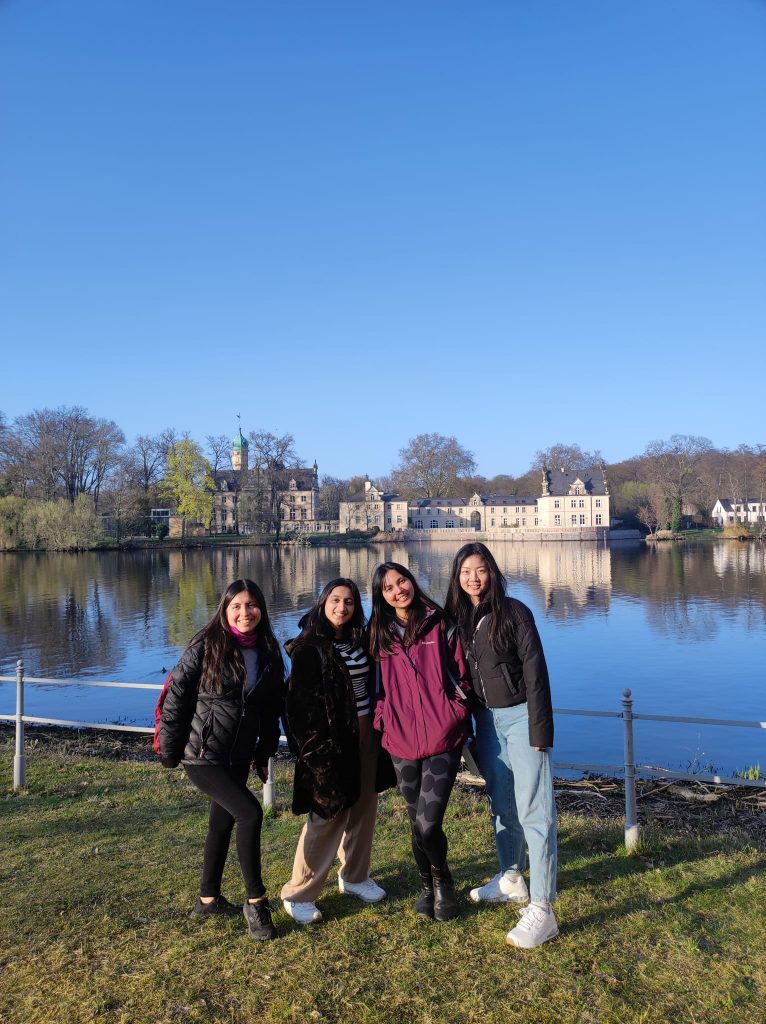
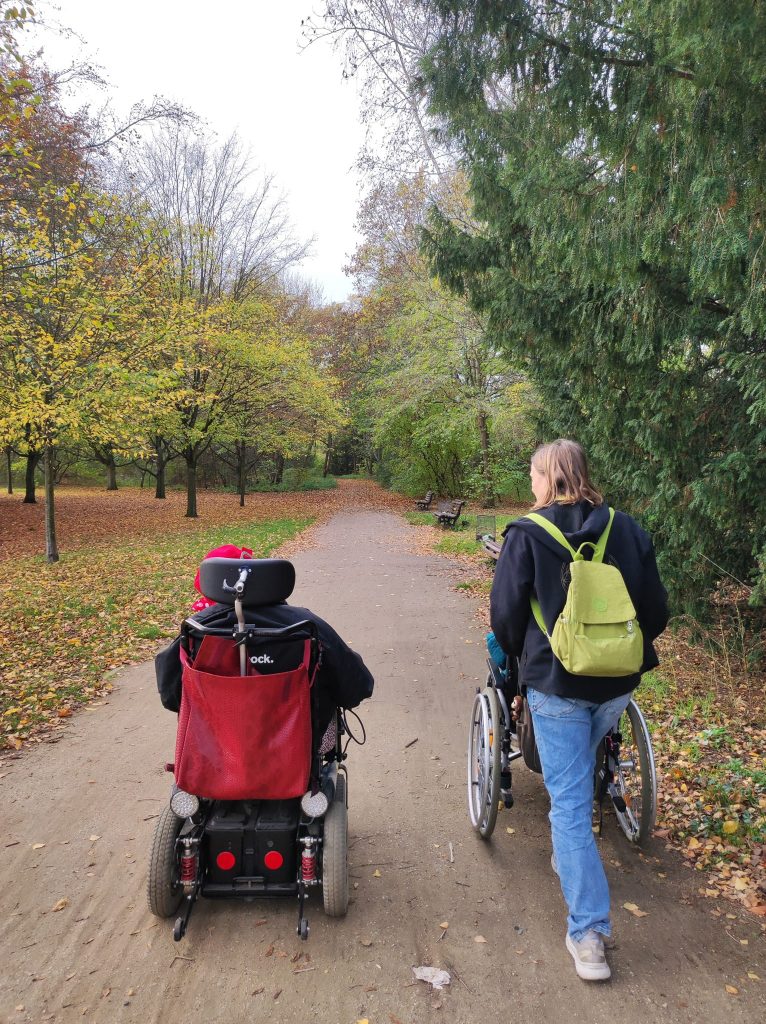
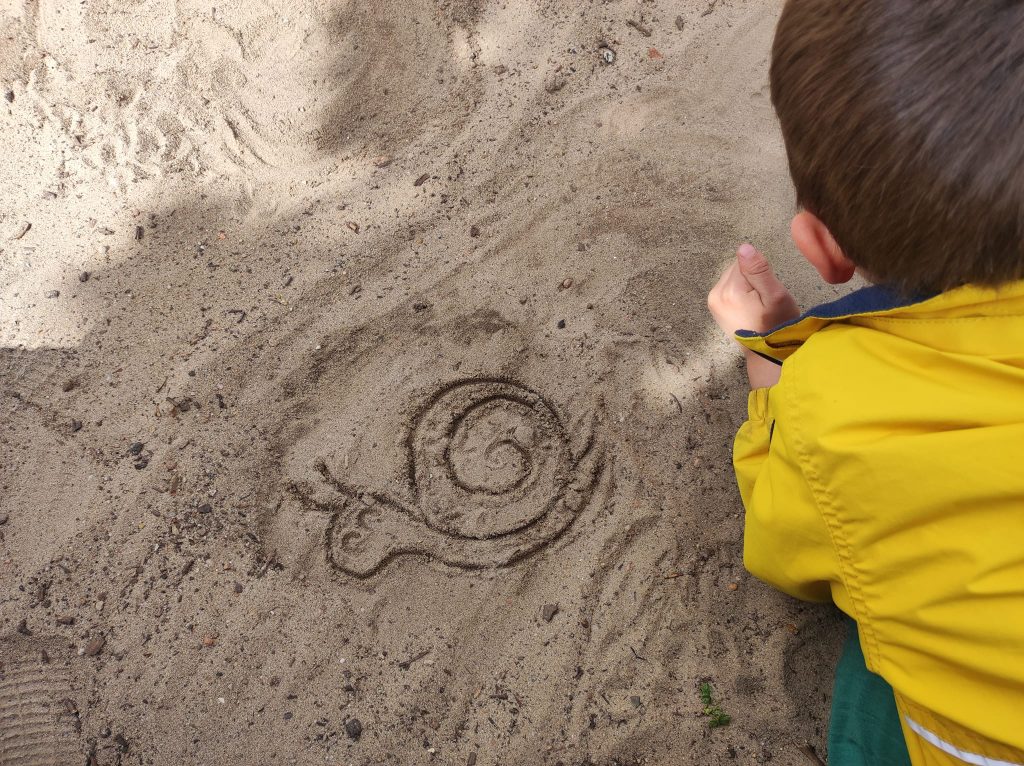
สวัสดีค่ะ วันนี้ดาหลามี เรื่องเล่าชาวอาสา จาก น้องคีม อาสาสมัครต่างแดนประเทศเยอรมนี หลังจากได้ร่วมโครงการไปแล้ว 8 เดือนค่ะ.นี่ไม่ใช่การเดินทางไกลบ้านครั้งแแรก ไม่ใช่การทำงานอาสาสมัครครั้งแรก และไม่ใช่การใช้ชีวิตอยู่กับครอบครัวอุปถัมภ์ครั้งแรกของเรา แต่เป็นการทำงานอาสาสมัครระยะหนึ่งปีเต็มแบบ full time ครั้งแรก ณ กรุงเบอร์ลิน ประเทศเยอรมนียังคงจำความรู้สึกดีใจแบบสุดขีดจนแทบจะกระโดดโลดเต้นเมื่อได้รับอีเมลล์ยืนยันการเข้าร่วมโครงการจากทางองค์กรปลายทาง เราเลือกทำงานกับเด็กเป็นอับดับหนึ่ง ทว่าได้รับเลือกให้เป็นอาสาสมัครดูแลผู้พิการ เราก็รีบตอบรับ พร้อมดำเนินการเอกสารวีซ่า เรียนภาษา เตรียมตัวโบยบินโดยทันที พลางบอกกับตัวเองว่า”สักครั้งในชีวิตกับการทำงานดูแลผู้พิการ”ฤดูใบไม้ร่วงผ่านไปอย่างรวดเร็ว พวกเราเหล่าอาสาสมัครจากนานาประเทศกว่า 30 ชีวิต เดินทางถึงเบอร์ลินต้นเดือนกันยายน จนเข้าสู่ฤดูหนาวอย่างเป็นทางการ นับเป็นระยะเวลาสี่เดือนเต็มกับการปรับตัว ปฏิเสธ และยอมรับในท้ายที่สุดว่าเราไม่ได้เหมาะกับการทำงานที่นี้การดูแลผู้พิการที่อาศัยอยู่ร่วมกันในบ้านพักรวม บ้างก็ช่วยเหลือตัวเองได้บ้าง และบ้างก็ไม่ได้เลย ต้องช่วยป้อนข้าว ป้อนน้ำ เตรียมอาหาร จัดการเสื้อผ้า พาอาบน้ำ ทำความสะอาดร่างกาย เปลี่ยนชุด เราได้ลองทำ เราได้ทำทุกอย่างที่เพื่อนร่วมงานคอยสอน และแม้จะมีเวลาได้นั่งเล่นเกม ทาเล็บกัน บ้างก็ดูหนัง ฟังเพลง ทว่านั่นกลับไม่ใช่เราเลย และได้เลือกที่จะสื่อสารออกไปอย่างตรงไปตรงมา คุยกับหัวหน้างาน เจ้าหน้าประสานงานโครงการ จนนำมาสู่ข้อสรุปร่วมกันยัง ยัง เขายังไม่ส่งเรากลับไทยเริ่มปีศักราชใหม่ด้วยการทำงานที่ใหม่กับบทบาทใหม่ในฐานะอาสาสมัครโรงเรียนอนุบาล ในที่สุดก็ได้อยู่กับเด็กจากหลากหลายเชื้อชาติทั้งเยอรมัน รัสเซีย โปแลนด์ อาหรับ ตุรกี แอฟริกา ฯลฯ ช่วงวัย 3 – 6 ขวบ โดยใช้ภาษาเยอรมันเป็นภาษาหลักในการสื่อสารกิจวัตรของเรานั้นจะเริ่มตั้งแต่ 8.00 ไปจนถึง 16.30 น. มีเวลาพักงีบหลับ 30 นาที งานหลักคือเน้นทำกิจกรรมกับเด็ก ๆ วาดรูป ระบายสี อ่านหนังสือ วิ่งเล่น ตัดปะ ปั้นดินน้ำมัน ต่อเลโก้ เล่นบทบาทสมมติ เฉลิมฉลองเทศกาลต่าง ๆ ฯลฯ งานรองคือเก็บกวาด ทำความสะอาด จากนั้นหลังเลิกงานแล้วเราจะมีเวลาไปทำกิจกรรมของตัวเอง บ้างก็ว่ายน้ำกับเพื่อน เข้าห้องสมุด เดินดูของในร้านมือสอง ซื้อวัตถุดิบสำหรับมื้อเย็น พบปะเพื่อนอาสาสมัคร รวมไปถึงการเป็นอาสาสมัครในกิจกรรมอื่น ๆ อย่างงานภาพยนตร์สั้นนานาชาติ งานศิลปะ งานกีฬาที่มักเปิดรับอาสาขาจรอยู่เป็นระยะพอเริ่มเข้าที่เข้าท่าก็ล่วงเข้าสู่ฤดูใบไม้ผลิ ผ่านมาแล้วมากกว่าครึ่งทางสำหรับชีวิตอาสาสมัครในต่างแดน เราได้เดินทางผ่านหลากหลายจังหวะอารมณ์ หลากรสชาติของชีวิต เรียนรู้และปรับตัวอยู่ตลอดเวลา มีวันที่เหนื่อยล้าจนไม่อยากลุกไปทำงาน ต้องใช้เวลาพักใจพักกายเมื่อพร้อมก็กลับไปทำหน้าที่ต่อ มีวันที่พร้อมทำงานเดินเฉยฉายยิ้มแฉ่งเข้าโรงเรียนพร้อมปะทะ เอ้ย พร้อมรับมือกับเด็ก ๆ และฤดูร้อนที่กำลังจะมาถึงขอบคุณดาหลาสำหรับโอกาสขอบคุณรัฐบาลเยอรมนีสำหรับทุนสนับสนุนขอบคุณครอบครัว ญาติมิตรที่ส่งเสริมทุกเส้นทางที่เลือกเดินขอบคุณตัวเองที่เอาตัวรอดได้จนถึงตอนนี้เรื่องและภาพโดยอาสาสมัครท่านหนึ่ง
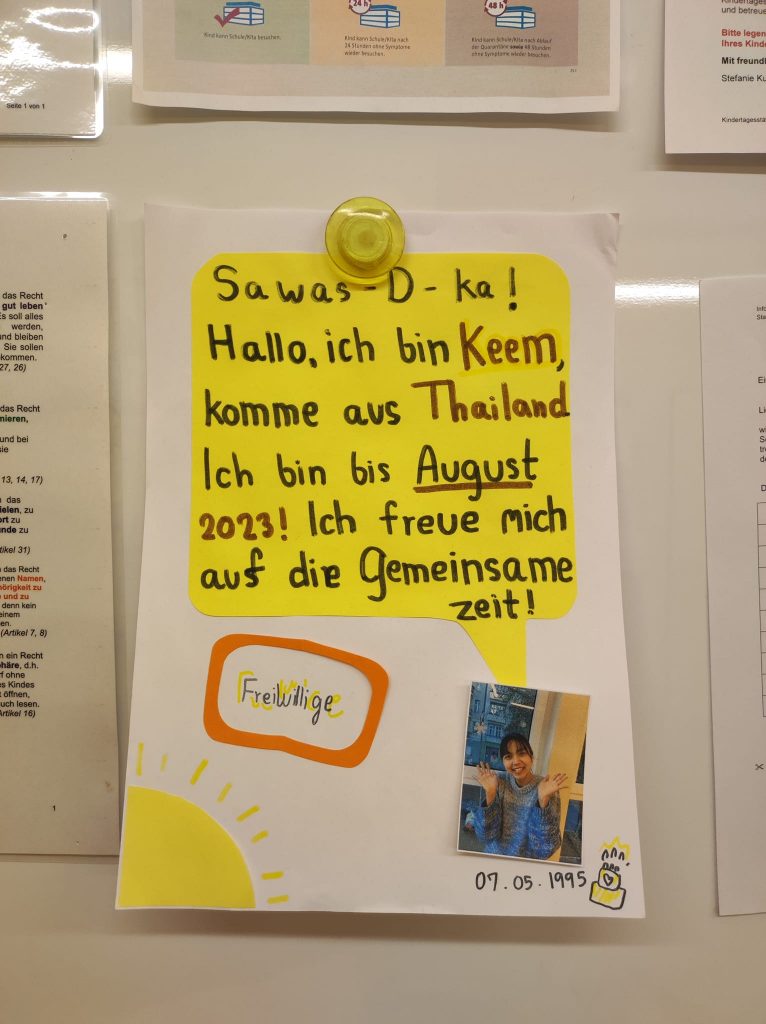
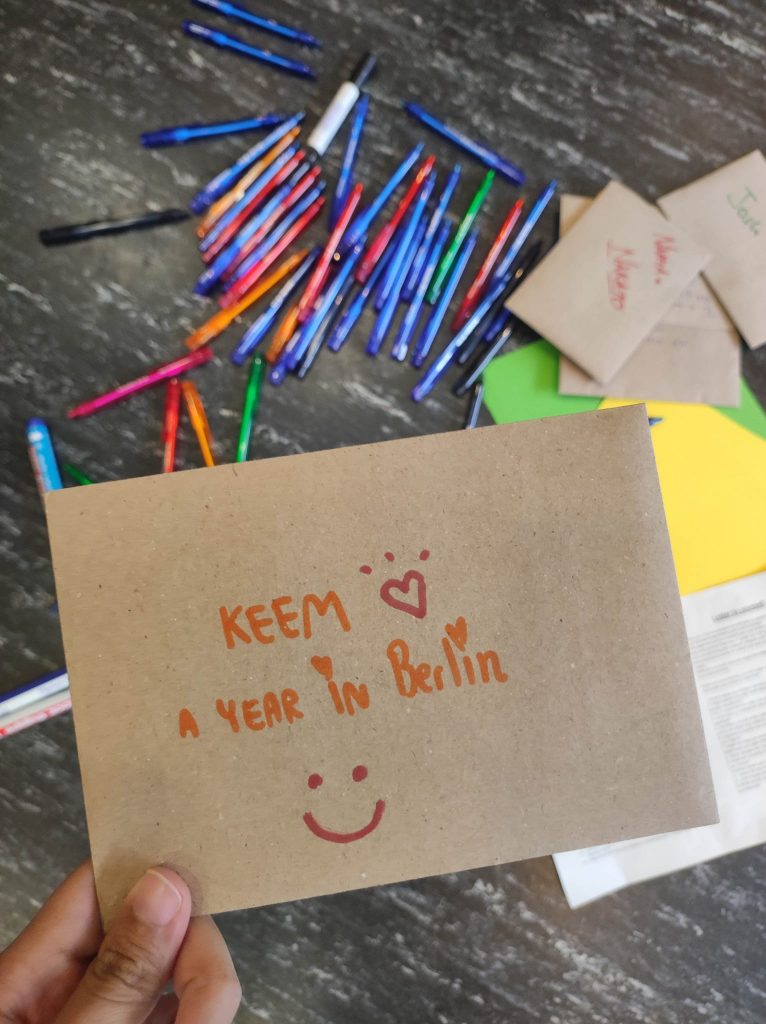
Author: DaLaa
Ban Kok Riang (Creative English teaching and community living)
DaLaa MLTV project – code: 2301
Open all year round, minimum 2 months stay
Maximum number of volunteers: 3-4
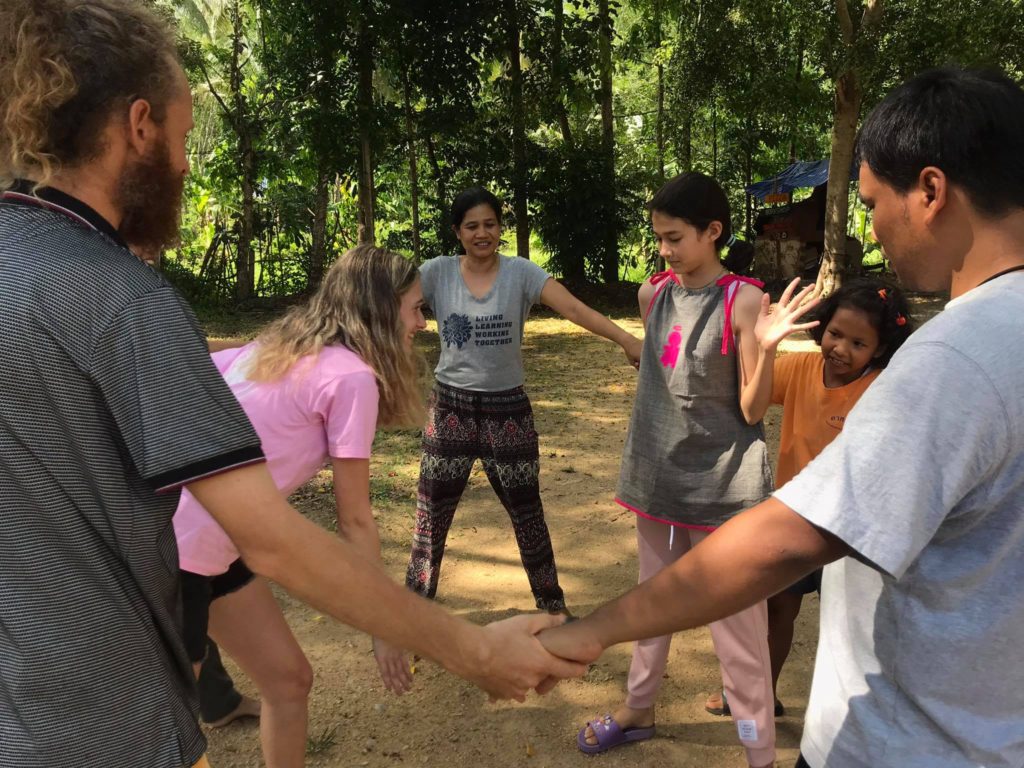
SHORT DESCRIPTION
Volunteers will join a small Buddhist community in Klong Hoy Khong districk, Sonkhla province, South of Thailand. They will organize activities for kids at the local school and in the village, share the life of the VSC (volunteer service community), helping with other work such as organize mini work camp in the weekend, helping in gardening and construction work at VSC (volunteers service community).
HISTORY and REASONS OF THE PROJECT
The village is known as Ban Kok Riang which is situated in Klong Hoi Khong district of Songkhla province, Southern Thailand. It is about 30 minutes away from Hatyai city and 15 minutes from the airport. The approximate number of villagers settling in this village is about 1,200 people or 140 families. Most of the villagers own fruit orchard and rubber plantation, and nearly all of them are Buddhists. There are a few Buddhist temples in the area and lots of rubber plantation lined up on the sides of the road. Some people living in the village commute to work at nearby city (Hatyai) for factories that export rubber and processed seafood products.
The school
Baan Plakkla School was founded in 1934 by the abbot of Plakkla temple. There are nowadays 6 teachers and 62 students from kindergarten to Grade 6 (6-12 years old). The kids have very few chances for interaction with foreigners and English language is more and more needed for their future.
Baan Plakkla School is a small school in Kok Muang sub district, Songkhla province, Southern Thailand. The school director, who shares our values, would like to welcome volunteers, to improve English skills for students to be able to communicate in this language. Volunteers can help to organize English lessons or other fun activities with the students from kindergarten to Grade 6 (6-12 years old). The English skills of the students are very poor. They are not familiar with foreigners. You can experience the local way of life, exchange with other volunteers, villagers and support the children education.
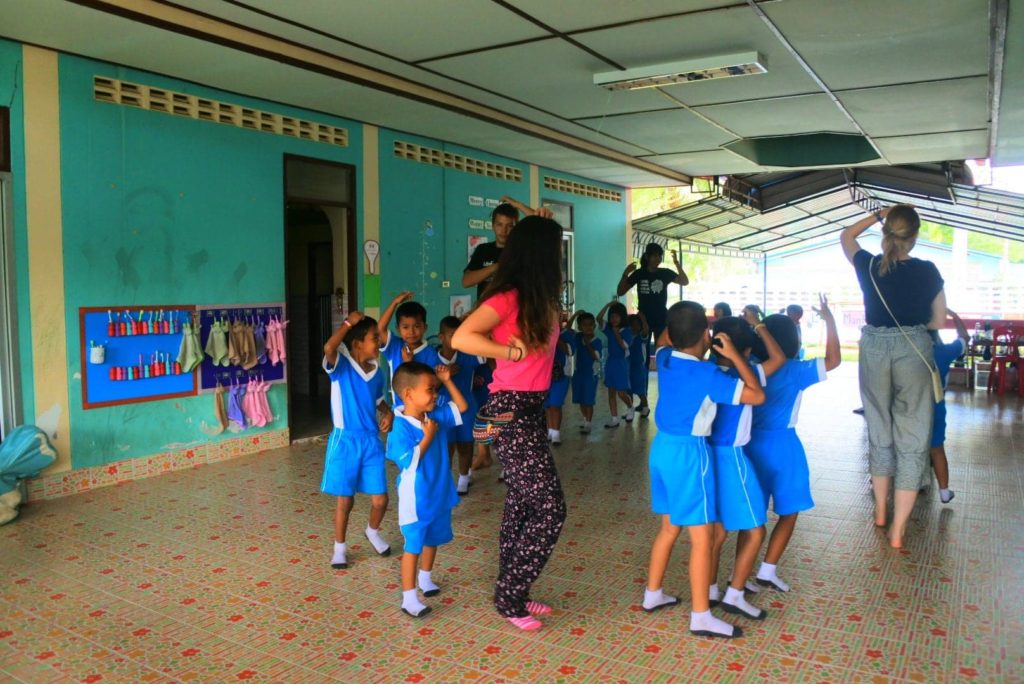
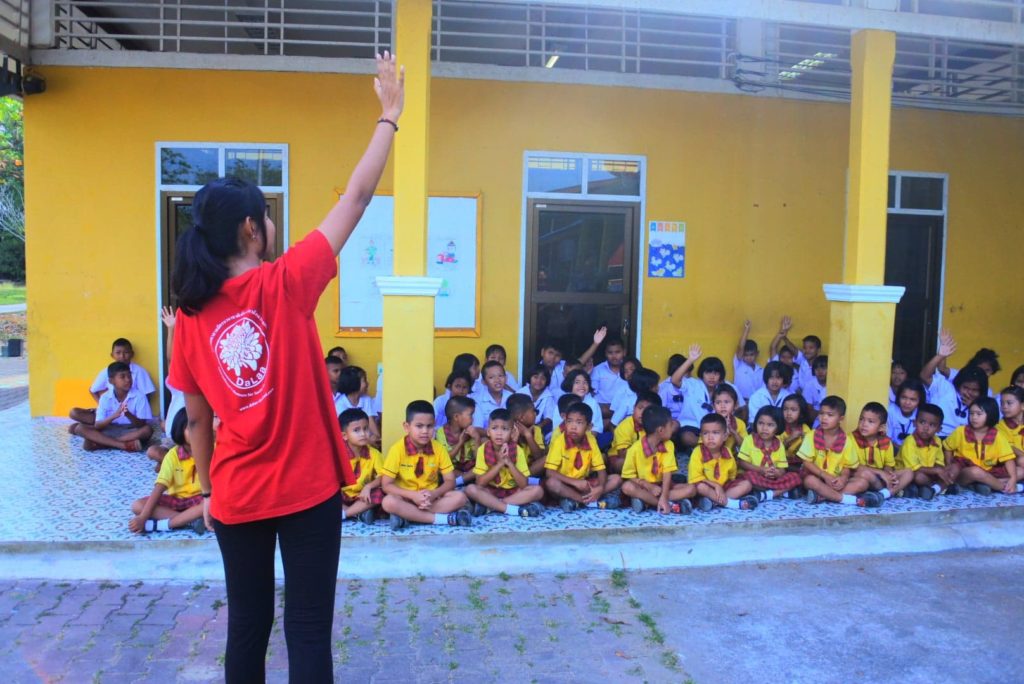
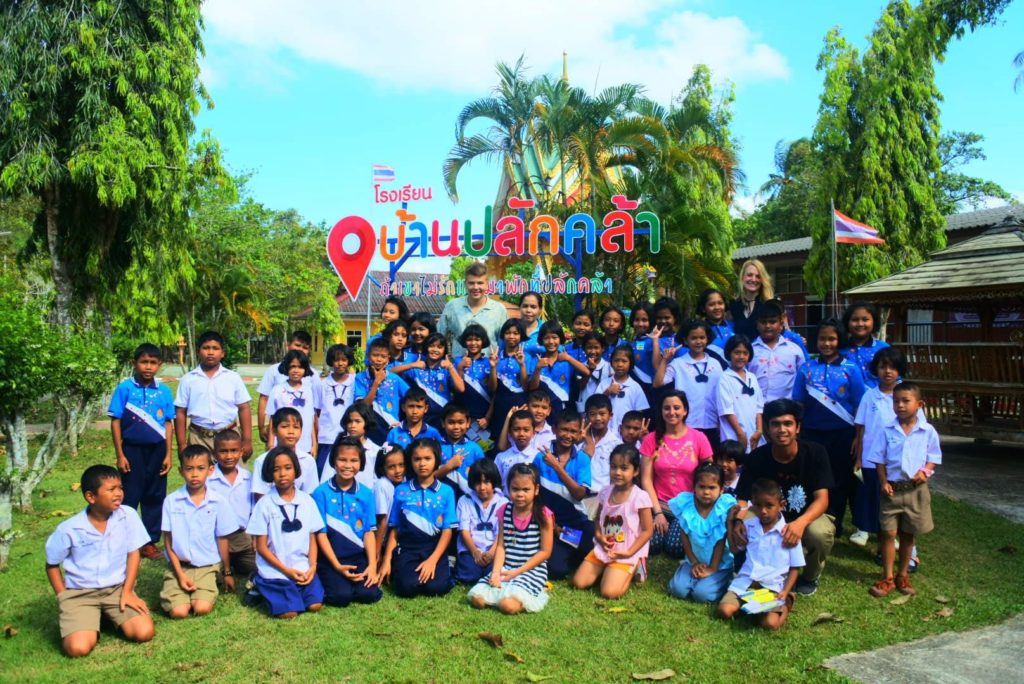
AIMS of the PLACEMENT
- To support Local school in the village
- To be part of the community of Ban Kok Riang village
- To be part of DaLaa organization , sharing life with staffs and other volunteers from VSC project
- To let children be familiar with volunteers and learn international/multi-culture atmosphere
- To improve English skills for students to be able to communicate with foreigners
WORK AND ACTIVITIES
- Give non-formal English classes and other fun activities with the students at primary school and at VSC on weekend
- Create teaching materials for teacher and kids
- Activities with villagers: cleaning the temple area, sport activities, homemade cooking dessert
- Cooking, gardening, seeds conservation, recycling, repairing and construction at VSC (volunteers service community)
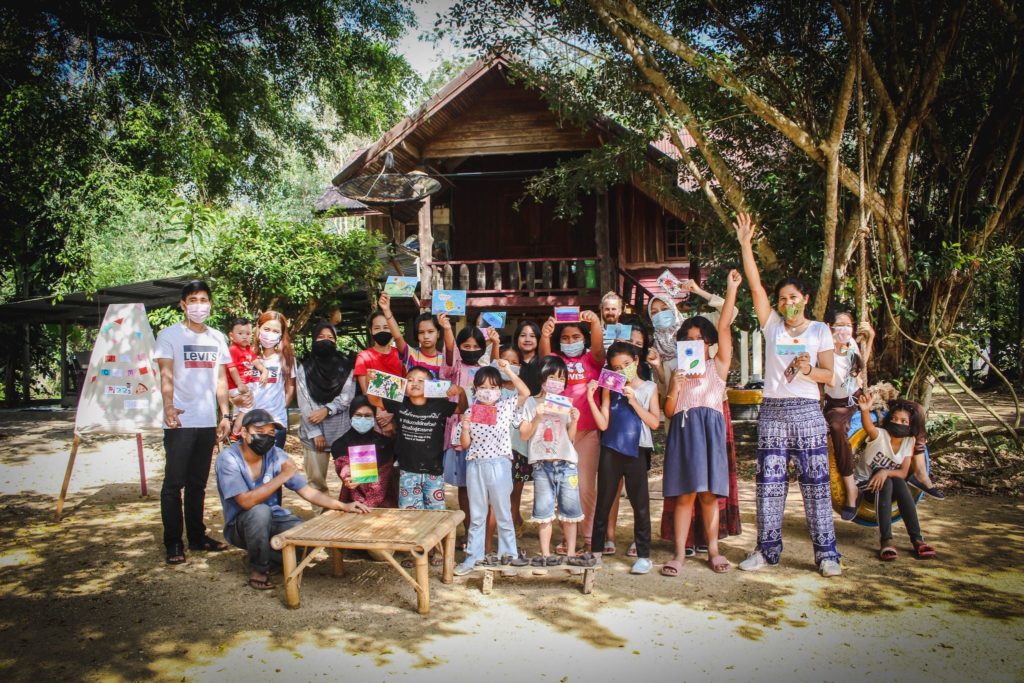
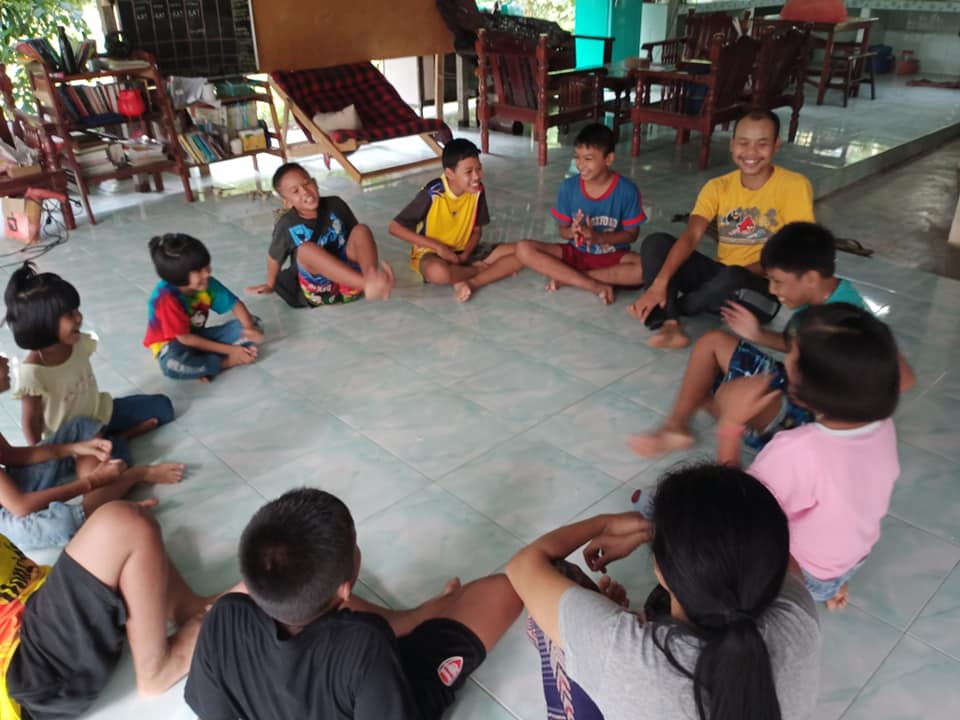
REQUIREMENTS
The volunteers should be ready to stay in a local area, to adapt to the local conditions with only basic facilities. Very few local people are able to speak in English. Volunteers should be able to be with the kids and prepare some games and material for teaching. Volunteers should be able to stay in a remote environment. Volunteers should be able to take responsibility for themselves and the team by taking care of their health and security and be fully involved in the daily tasks.
** Clothes worn in the village- schools and temples: skirts or shorts long enough to cover your knees also when you are sitting. Women should wear tops that cover their shoulders, no low neckline. Bikinis are not appropriate to swim if you go on holidays. Please wear long shorts and a top instead.
FOOD and ACCOMODATION
Volunteers will stay in the volunteers’ hut in the DaLaa organization area, there are also some DaLaa staff staying in the same place. There will be simple mats, pillow and mosquito net. There are basic toilets, showers and a kitchen. We cook together with the team and DaLaa staffs. Local people eat rice (or noodles) 3 times a day with side dishes like curries, omelets, local leaves and vegetables. Volunteers will be welcome to cook their own food using the ingredients available there. (No oven, only a gas and woks or pans).
Suan Som Rom Na Phru (Local crafts discovery & organic garden)
DaLaa MLTV project – code: 2203
All year round
Expected number of volunteers: 2
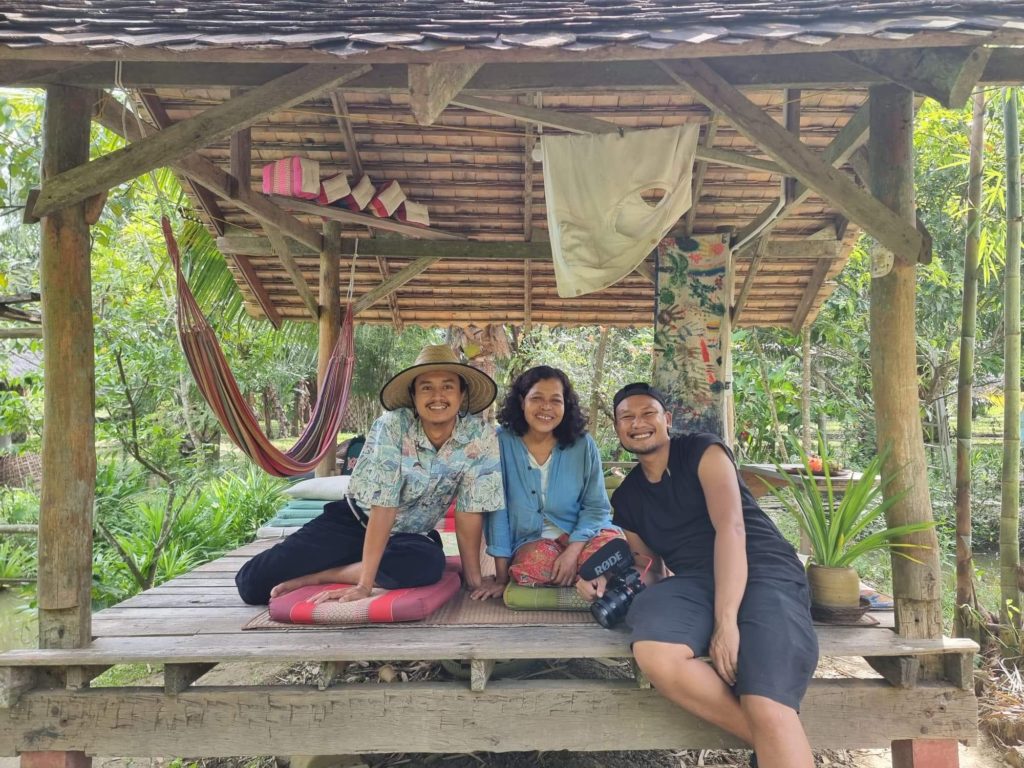
SHORT DESCRIPTION
Prapai Thongchern also known as Phi Yoi is a 50 years old single woman pioneer in natural living. She has a a long experience in natural color textiles and starting local green markets in the province of Phatthalung (South Thailand) that have became really successful. She has restored a family land covering an area of 4 rai (1.6 acre), which used to be a peat swamp field with sago palm dense forest, and turned it into a beautiful farm named “Suan Som Rom Na Phru”. This farm is used both as a learning space and to provide her with daily fresh food and environment . The place is ideal for recharging the life energy and finding an inspiration from the simplicity in nature.
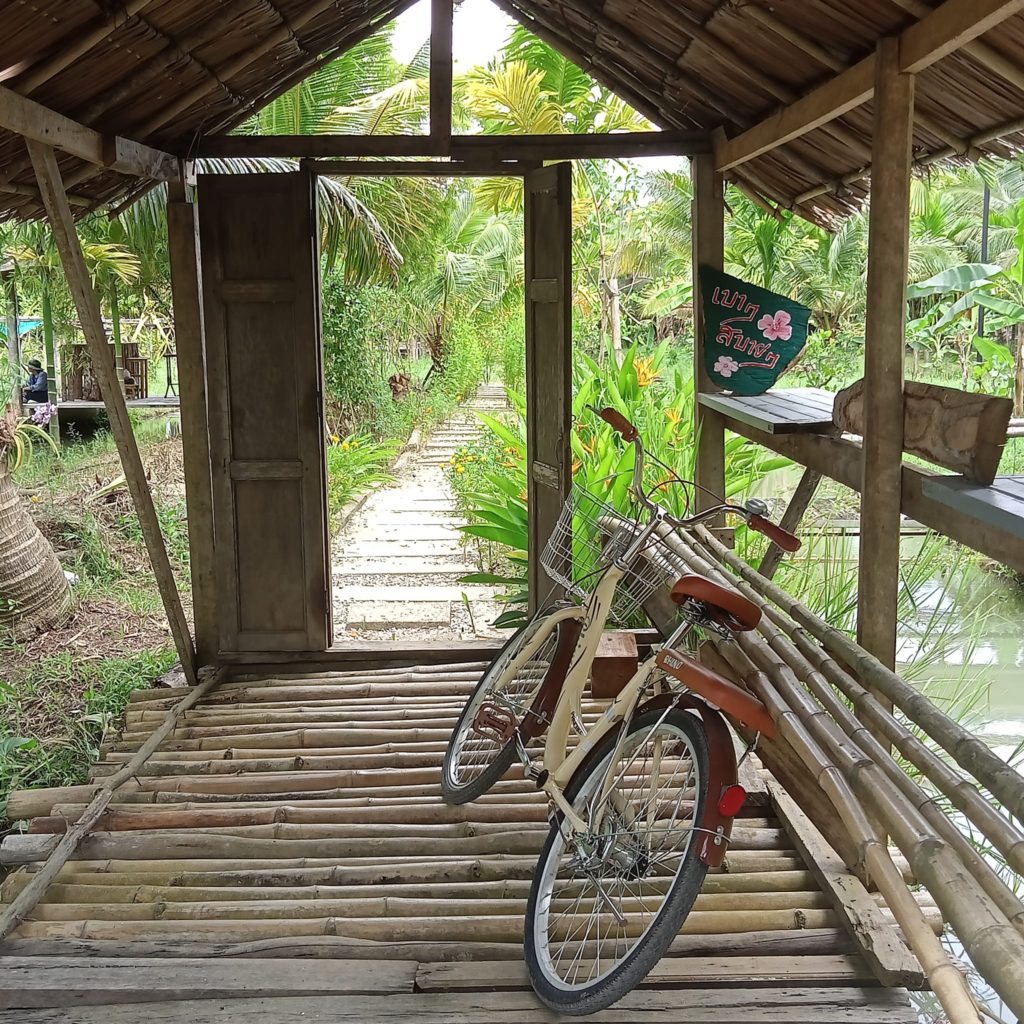
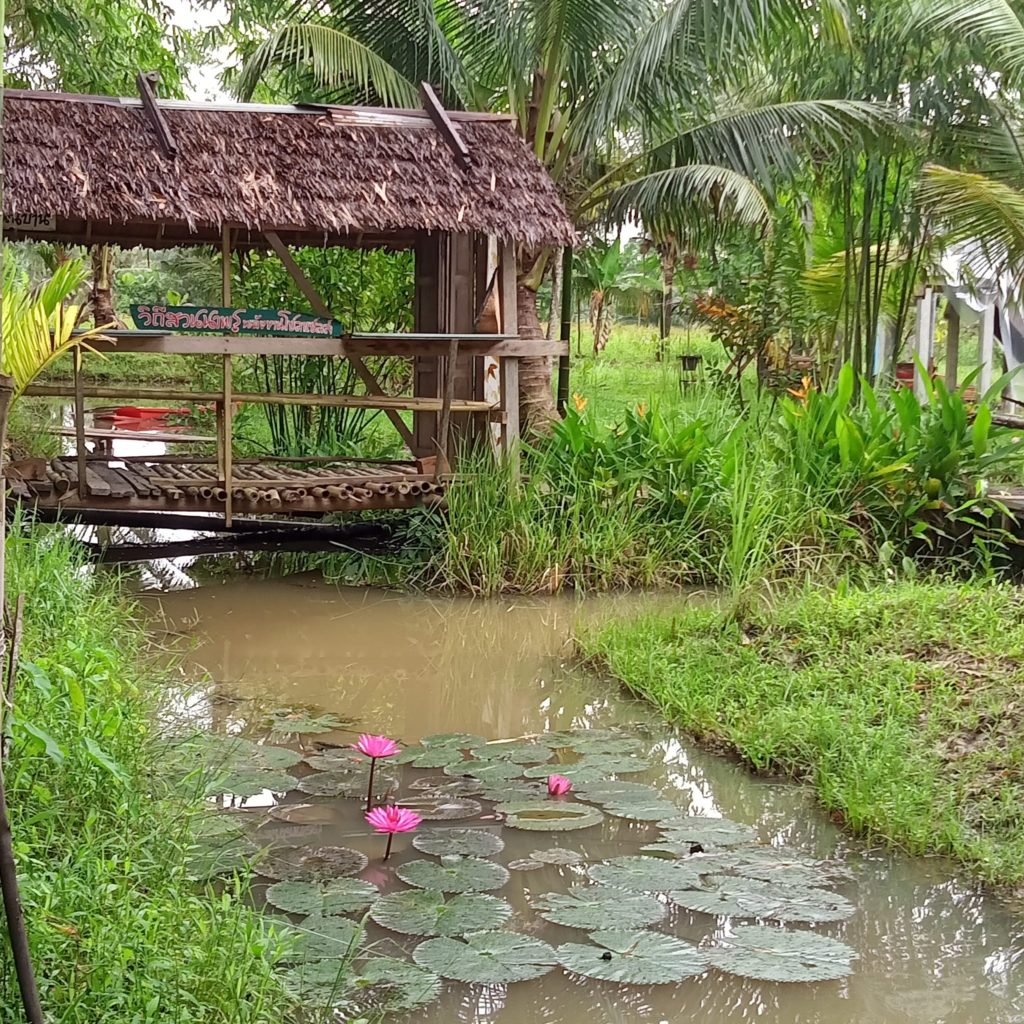

AIMS of the PROJECT
· To learn and support organic farming, self-reliance, cooking and local culture and handicrafts.
· To join the life in the community, and possibly exchange culture and language with partners and visitors.
WORK- ACTIVITIES
– Handicrafts- P. Yoi is an expert in local culture and knows how to support the local wisdom and skills to be recognized. She is often invited to join local crafts, organize eco-tourism activities and herself practice many skills like dying clothes or basket weaving.
-
– Learning about food processing, cooking, Thai dishes, Thai desert.
– Agriculture (seeds conservation, planting, potting, caring, collecting, weeding, watering, composting…)
– Activities with kids in the local small school.
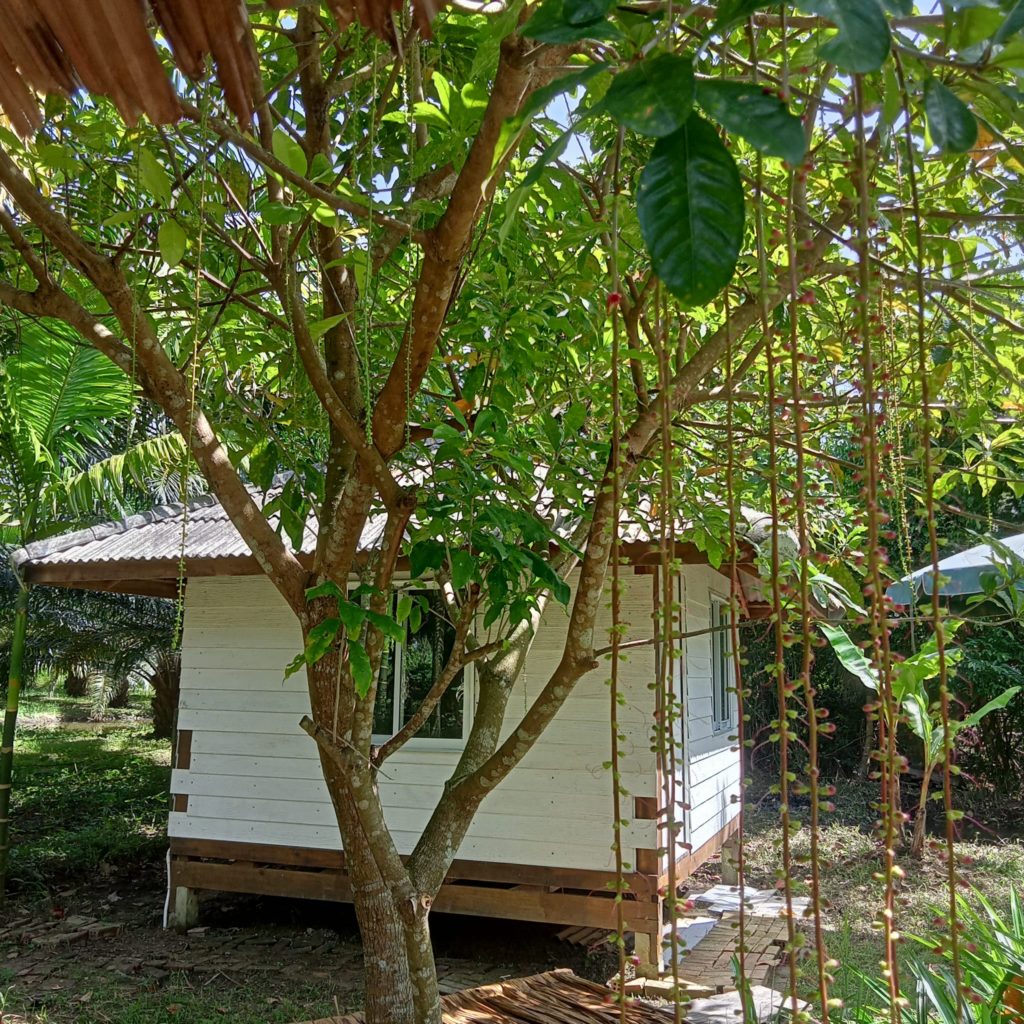

REQUIREMENTS
This project is for volunteers who are interested and willing to stay in a basic environment, exchange on organic agriculture, self-reliance, cooking and Thai traditional cultures. The volunteers will learn more about green market and community network building.
Volunteers should be ready to adapt to the Thai, local way of life, and willing to create relationships with volunteers’ friends, hosts and local people. Some difficult points could be mosquitoes and insects, eating rice at every meal, language and culture barrier, changing plans often.
Volunteers should be able to take responsibility for themselves and the team by taking care of their health and security and be fully involved in the daily tasks.
** Clothes worn in the village- schools and temple: skirts or shorts long enough to cover your knees also when you are sitting. Women should wear tops that cover their shoulders, no low neckline. Bikinis are not appropriate to swim if you go on holidays. Please wear long shorts and a top instead.
FOOD and ACCOMODATION
- Volunteers will cook meals together with the host, suitable for vegetarians. (using wooden for cooing)
- Volunteers will stay in a small Thai style house, same area as the host house, mosquito nets, pillows, blankets and mattresses are provided.
Kok Payom
Community
“Learning
Community, Creative English teaching and environment”
DaLaa MLTV project – code: 0950
Open all year round (except March to April), minimum 2 months stay, Nb of volunteers: 4

SHORT DESCRIPTION
Join the life of a small fishermen village of the Andaman Coast-South Thailand and teach English at the local school, or in a non-formal way in the evening and weekends. The village is bordered with a sea canal and a beautiful mangrove forest. You will share the daily life of the villagers, absorbing their wisdom and spread it in your own way with fresh energy to the local kids, realizing also their difficulties and bring your rock for a better future at Kok Payom.
Background
Kok Payom is a small muslim-majority village in Langú district, Satun, in the South of Thailand, with approx. 600 inhabitants. People in the village mainly rely on fishing and agriculture – rice, rubber, palm, fruits, vegetables, spices – as for their daily living and main source of income. There is 1 mosque, a religious school (Tadika) 1 public primary school (kindergarden and grades 1-6), a few small shops and community spaces in the village. 1 NGO established by local people are active in the Village with the main focus on mangrove and environmental conservation and the other.
Kok Payom, is located 10 kilometers away from the town of Langu in Satun Province. The village is only few km from the sea and linked to it through a large river/canal: the water is salty and there is a strong tide. Most families own a boat and go fishing everyday at the river or at the sea. There are also rubber plantations and rice fields. It is a very peaceful location surrounded by an area of mangrove forest. This village is about 100 years old.
Until late 1980’s, villagers were working for a company (government concessions) to make coal from the rich wood of the mangrove forest. They cut almost all of it.Then there was the law to definitively stop these concessions and to forbid cutting the rich wood all over Thailand. [This was the start of national parks. But 80 % of the tropical forests of Thailand were already down to exportation…and locals were forbid to cut trees for their own need, even, in many cases people living in the limits of the new called national parks have been forced to leave their houses]. When Kok Payom people realized the fishes and crabs were disappearing from the canal, some villagers made the link and decided to replant and take care of the mangrove. And indeed, most of the life of the canal and the whole ocean is starting in between the roots of the mangrove (and the corals too).Nowadays, many areas have been replanted around the village, and even if the mangrove has only 2 or 3 trees species and most trees are of the same height, the life is growing under, in between the roots that can deal with the tides and salty water. The villagers want to continue to take care of the mangrove and we would like to support them with hand, head and heart power.
Villagers want also to take care of the social life of the community. The social values of respecting and supporting each other in their traditional way of life are difficult to maintain nowadays. Like everywhere in the world, villagers face more and more challenges. The community has recognized some of these problems and is working hard to find solutions to the environmental and social issues. They greatly welcome visitors, activists and volunteers who can contribute to these efforts.
Since 2009, DaLaa volunteers have been working with the villagers and children especially at the local schools. There have been a big improvement and continuation of useful activities and constructions. Community members are more aware of environmental issues and how to preserve the local beliefs and life style. In 2010, the villagers, creates “Klong Toh Lem school”, an alternative school on the other side of the canal, in the middle of mangrove forest where children were learning about environment, local values, wisdom, and language in a very natural method of learning every Sunday. Since the Covid period, the activities were totally stopped and the nature took over the School, and now the local people want to start the Klong the Lem aschool again together with the volunteers.



AIMS of the PROJECT.
- To support and be part of Kok Payom learning community (to preserve their community values and life style)
- To be part of the education of local children, especially with English language
- To learn about local cultures and wisdom
WORK AND ACTIVITIES
Volunteers can possibly do the activities as follows:
- Create non-formal English classes at local schools
- To support some work for community base project (Masjid and Islamic learning centre)
- Organize nature trips with children (awareness of the importance of nature)
- Plant young seedlings in the mangrove forests (occasionally)
- Organize fun and enjoyable activities to the village children at the village meeting place
- Experience Thai Muslim culture, language and local lifestyle with the villagers and support in any useful activities.


REQUIREMENTS
The volunteers should be ready to stay in a remote area, to adapt to the local conditions with only basic facilities and with few people able to speak in English. Volunteers should be able to handle spontaneous working environment and constant changes in the plans. The mentality and way of thinking is very different from the western world. There will have often activities with the children. To have responsibility for yourself, the kids and full involvement in community matters is a must.
Villagers of Kok Payom are Muslim so there is no pork or alcohol in the village. Women should dress modestly although you will discover when you live there that the villagers are very relaxed.
FOOD and ACCOMODATION
– We will cook meals together with the host family, there is a lot of sea food, rice, vegetables. Because the family is Muslim, there will be no pork nor alcohol.
– Volunteers will stay at the host house. The mosquito nets, pillows, blankets and mattresses are provided. The conditions are simple.
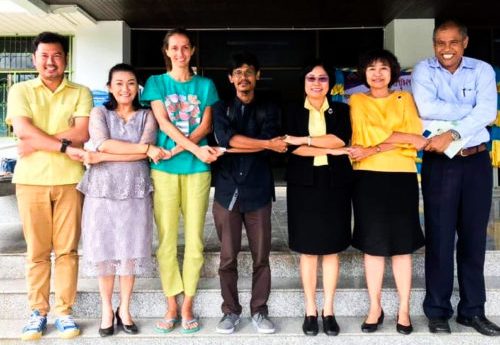
I was deployed in a small Muslim village of Kokpayom in southern Thailand, near seawater channels surrounded by mangrove forests. The main host organization, Dalaa, has made a long-term commitment to the village with an emphasis on education, lifelong learning, community development and environmental conservation.
It was my first field experience in Asia. Despite cultural differences, the hospitality of the local community has made us feel at home from the very beginning. Over the past six months, I have had the opportunity to work with local people and organizations and visit other project sites in different parts of southern Thailand. It gave me a good overview of rural development and how local communities can mobilize to be more active.
As an EU development volunteer, I had the opportunity to work on different initiatives of the host organisation and to improve my professional skills and knowledge by gaining valuable field experience. My work was mainly focused on education and community development.
I helped the host NGO develop more effective networking activities so that it could build stronger and more sustainable partnerships. One of my main tasks has been to help the NGO develop a more strategic partnership with the local community college, with the aim of promoting and supporting inclusive education, lifelong learning for better opportunities and community development. The two organizations are in the process of finalizing a memorandum of understanding that will formalize the partnership.
This was an excellent opportunity to put my professional expertise at the service of the local NGO to identify the needs of the community by developing the pilot phase of the Kokpayom community needs and strengths assessment and training local volunteers in this tool. The initiative for such a comprehensive assessment was the first of its kind for the community, as previous research was not so broad in scope and did not target the entire village population. The host NGO is now familiar with the evaluation tool and will use it again in the next phase of the evaluation in January 2019. The results of this project would help the NGO to improve its activities and programmes so that they can reach even more people in the village, meet the real needs of the community and provide new opportunities for learning, personal growth and development. In addition, the evaluation will contribute to the dissemination of local knowledge and skills and capacity building as the trained local volunteers (high school and university students) who helped conduct the survey will share this knowledge with their peers. The results of the pilot phase confirmed the credibility of the NGO and its key role in community development and empowerment.
One project that I fully accepted and worked on with great pleasure was related to children’s education and girls’ empowerment. I had the opportunity to teach in local schools and become familiar with the local education system. We also organized extracurricular activities to engage children and youth and encourage them to become active members of their communities. The village has created a new “Girls’ Club” whose activities are developed thanks to the creativity of the girls and more and more children are expressing their interest in joining it.
What I consider to be the most rewarding part of my volunteer experience is the opportunity to work closely with the local community, to have direct contact with it, to interact and learn from each other. Through the EU Aid Volunteering, I have seen how the local community is mobilising to meet its needs with local resources, and I have had the opportunity to help them in this process in order to increase their resilience. The hospitality and kindness with which the local population welcomed the volunteers contributed to the success of the deployment project and motivated me to pursue my professional development in this field.
Petya Koleva, Bulgaria
